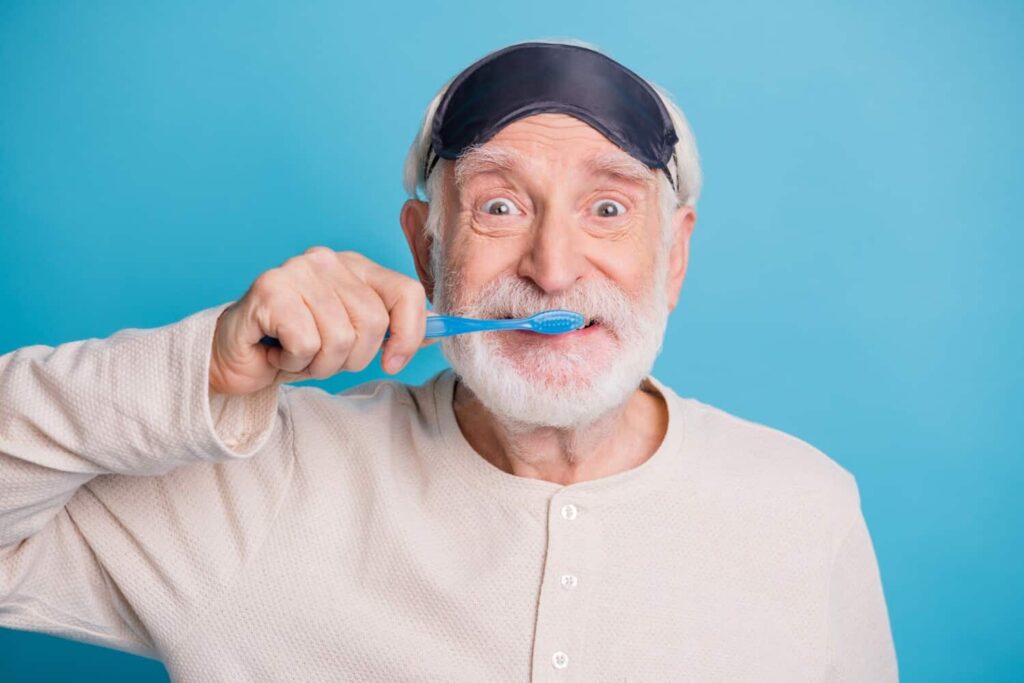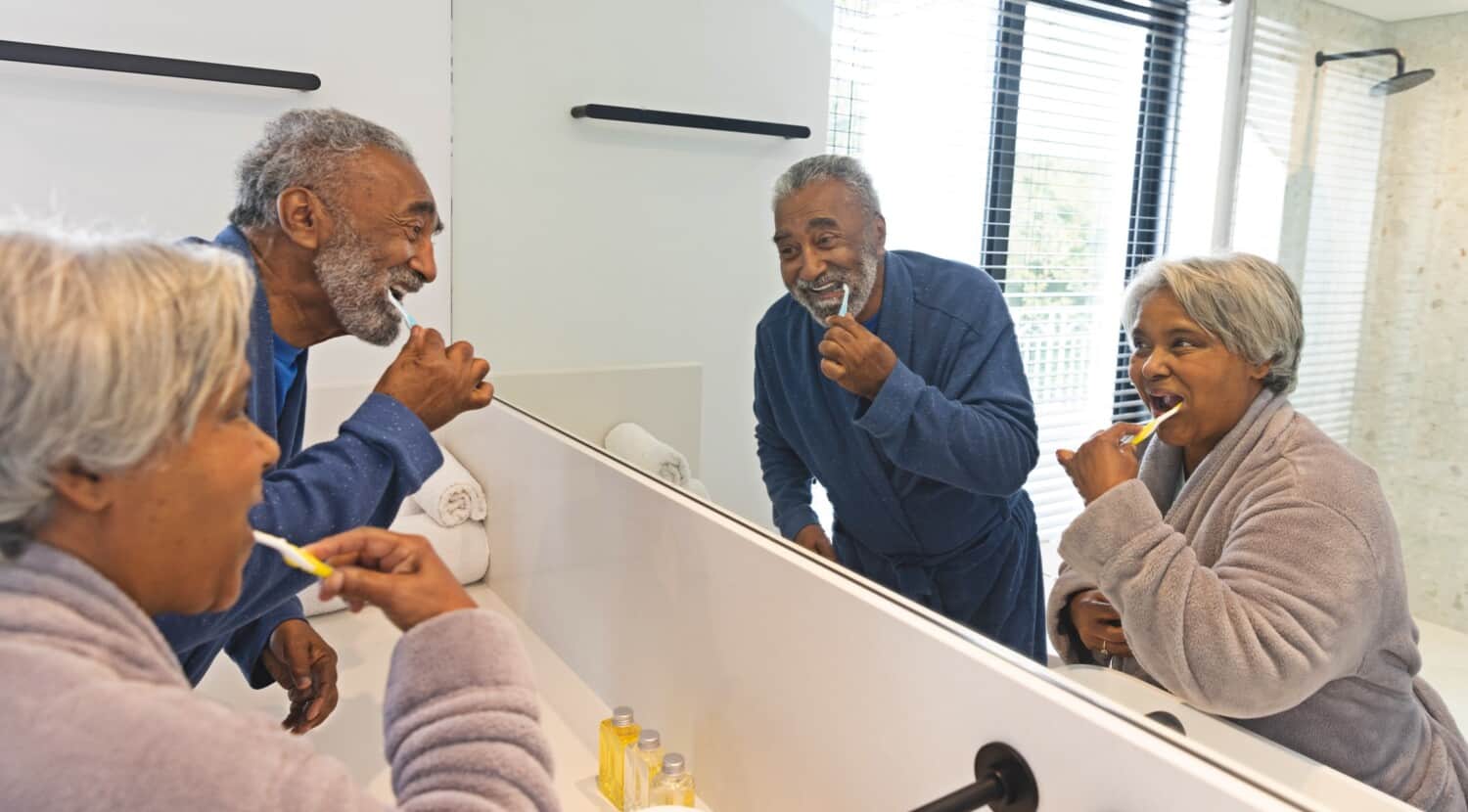Geriatric dentistry, also known as gerodontics, focuses on the oral health care of older adults. As the global population ages, the need for specialised dental care for the elderly becomes increasingly important. Gerodontics addresses the unique dental challenges faced by seniors and the maintenance of oral health in patients with complex medical histories and functional limitations.
This article explores the management of these age-related dental issues, and the comprehensive care required for older adults.
Dry Mouth (Xerostomia)
Dry mouth, or xerostomia, is a common condition in elderly patients, often resulting from the use of certain medications, systemic diseases, or radiation therapy for head and neck cancers. It can significantly impact oral health by increasing the risk of tooth decay, gum disease, and oral infections.
How to Manage?
- Hydration: Encourage patients to drink water regularly which helps alleviate dry mouth symptoms.
- Saliva Substitutes: Over-the-counter saliva substitutes and mouth rinses can provide temporary relief and improve oral comfort.
- Medications: In some cases, medications that stimulate saliva production.
- Oral Hygiene: Maintaining excellent oral hygiene is crucial. Patients should be advised to brush with fluoride toothpaste, floss daily, and use antimicrobial mouth rinses to reduce the risk of infections and decay.
- Dietary Modifications: Avoiding caffeine, alcohol, and sugary or acidic foods can help reduce dry mouth symptoms and the risk of dental problems.
Root Caries
Root caries, or cavities that form on the roots of teeth, are particularly prevalent in older adults due to gum recession and exposed root surfaces. These areas are more susceptible to decay because they lack the protective enamel layer found on the crowns of teeth.
How to Manage?
- Fluoride Treatments: Professional fluoride treatments, such as fluoride varnishes or gels, can strengthen the root surfaces and reduce the risk of decay.
- Antimicrobial Agents: Chlorhexidine mouth rinses or varnishes can help control bacterial growth and prevent root caries.
- Restorative Treatments: When root caries develop, restorative treatments such as fillings or crowns may be necessary to restore function and aesthetics.
- Regular Dental Visits: Frequent dental check-ups allow for early detection and management of root caries, preventing further complications.

THE ROLES OF PREVENTIVE CARE
Preventive care is the cornerstone of maintaining oral health in geriatric patients. Regular dental visits, professional cleanings, and personalised home care routines can prevent many age-related dental issues and improve overall health and quality of life.
Key Preventive Measures:
- Oral Health Education: Providing education on the importance of oral health and proper hygiene practices helps patients and caregivers maintain a healthy mouth.
- Dietary Counselling: Advising patients on a balanced diet that limits sugary and acidic foods can prevent decay and other oral health problems.
- Fluoride and Antimicrobial Treatments: Regular application of fluoride and antimicrobial agents can protect against decay and gum disease.
- Early Intervention: Detecting and treating dental issues at an early stage can prevent more serious problems and maintain oral function and comfort.
Conclusion
Geriatric dentistry addresses the unique oral health challenges faced by older adults. Through a combination of preventive care, personalised treatment plans, and interdisciplinary collaboration, dentists can provide comprehensive care that improves the oral health and quality of life for elderly patients.
As the population continues to age, the role of geriatric dentistry will become increasingly important in ensuring that older adults receive the specialised care they need to maintain a healthy and functional oral cavity.
References
- Ettinger, R. L., & Beck, J. D. (2010). Geriatric dental education and training in advanced general dentistry and general practice residency programs. Journal of Dental Education, 74(1), 25-32.
- Locker, D. (1993). Symptoms of xerostomia among older adults in a Canadian cross-sectional study. Community Dentistry and Oral Epidemiology, 21(3), 165-168.
- Baysan, A., & Lynch, E. (2007). Management of root caries in the elderly. Clinical Interventions in Aging, 2(4), 599-604.
- Friedlander, A. H., & Norman, D. C. (2002). Geriatric syndromes and oral health: An overview. Gerodontology, 19(1), 3-6.
Want to book an appointment?
Book online by clicking here. Call our friendly team on 3390 6100 or email us.







